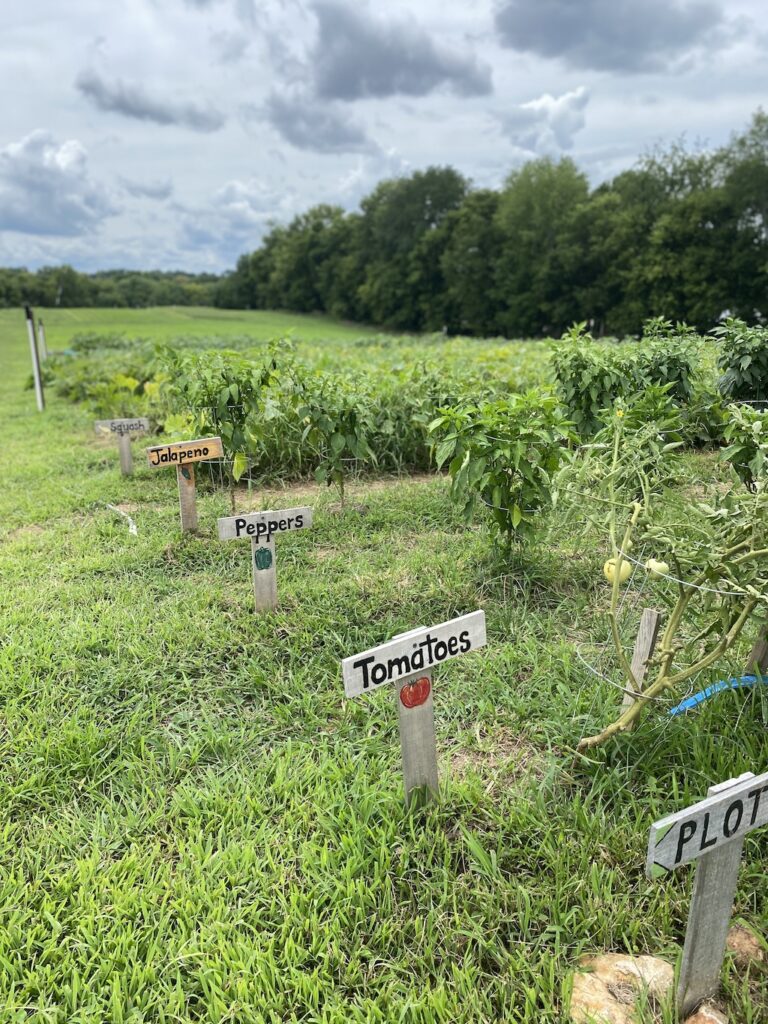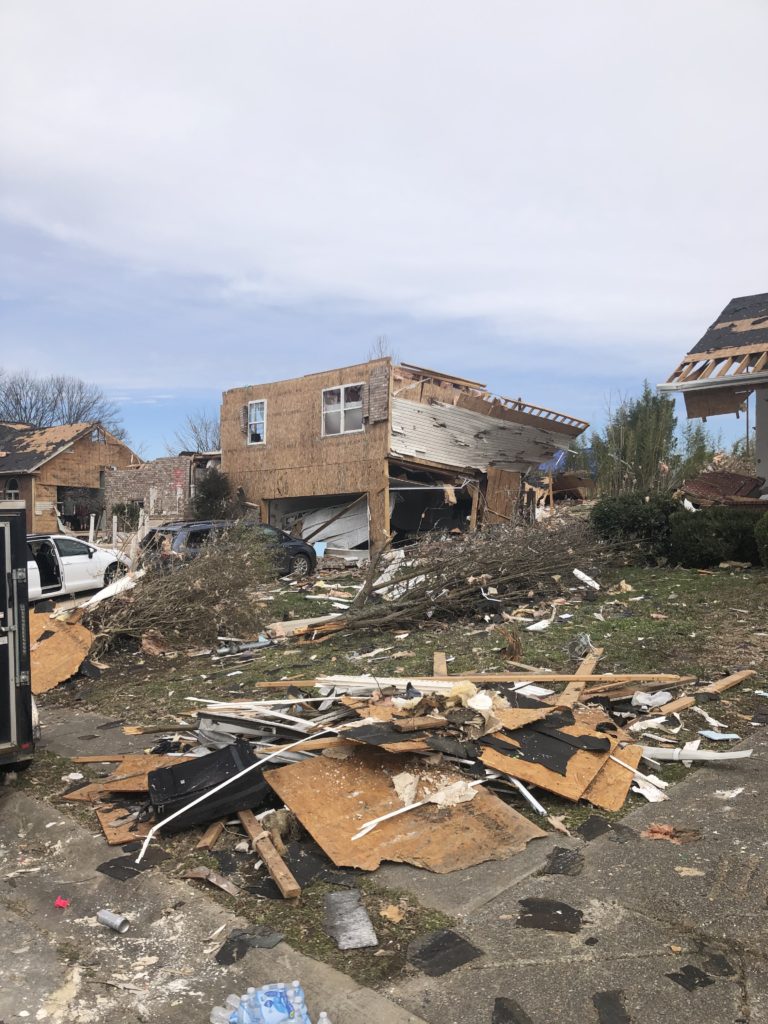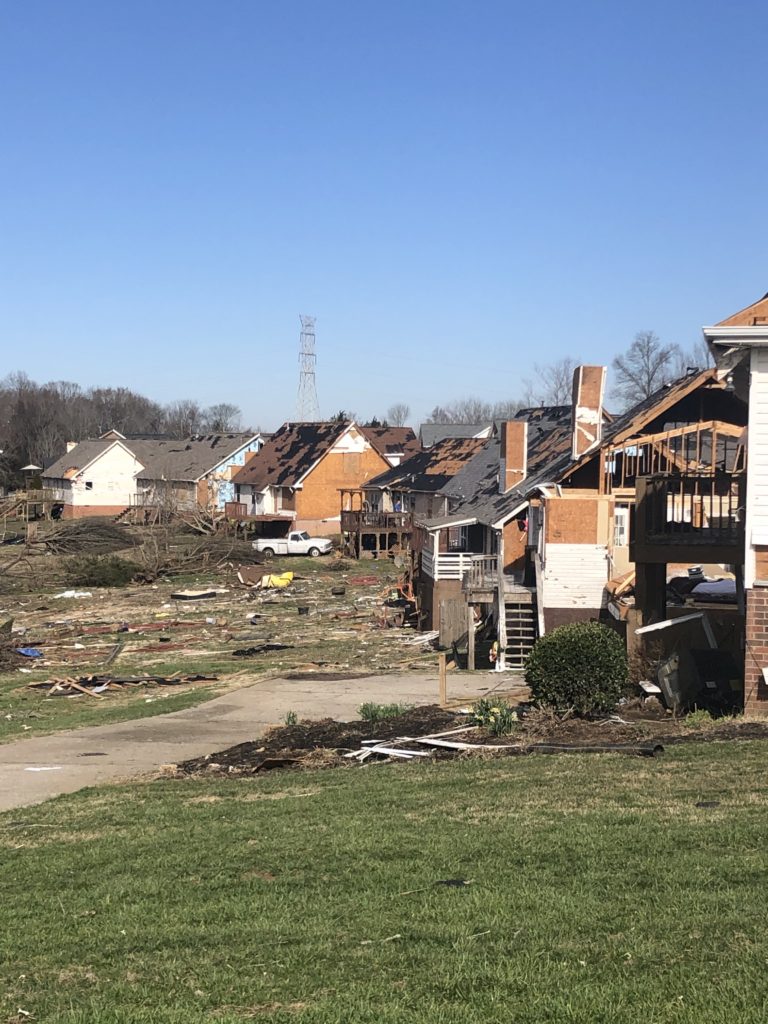In March of 2020, as the world was shutting down for COVID, our church, Redemption City Church, started growing food on our church property to give away to meet food shortages in our area. Nearing the end of the third growing season, with a lot of ups and downs along the way, we have grown and given away over 90,000 lbs of food to reduce spiritual and physical hunger amongst every kind of population you can imagine here in Mid-TN. That’s a little over 70,000 people that Redemption City Church, a nine year old church that typically has a little over 400 people on a Sunday, has been able to feed in Jesus’ name.
No, we didn’t start this ministry because we want to become farmers, we simply wanted to be faithful—faithful to the calling of God on our church to advance his mission in our context with all that He’s entrusted to us. As strange as it sounds, we wanted to follow in the footsteps of heroes of ours like George Mueller, to name one of many, who used mercy ministries, like his orphanage, as a strategy for “showing God” to a world in desperate need of Him.
Of course, our church, wasn’t the first to think of doing something like feeding the hungry. Jesus set the pattern for reducing spiritual and physical hunger in his ministry, most famously as he miraculously fed the multitudes (Matt 14-15). In those narratives, we learn that Jesus spoke to the spiritual hunger of their hearts so powerfully that the crowds were willing to follow him and listen to him for long periods of time without regard to food. Their hearts and minds were starved. Jesus’ message was a feast. Indeed, he is the bread of heaven (Jn 6).
But, more famously, in those narratives Jesus also fed their hungry bellies. What is so often missed in our reading of these miraculous narratives is the fact that Jesus fed the multitudes through his disciples. “You feed them,” Jesus said to his disciples. They knew that Jesus’ command was impossible. After all, the size of the crowd was most likely around 15,000 people! Jesus called his disciples, and all of us since then, to join him in an impossible work that brings him great glory and does great good. And that’s what happened. After commanding the disciples to do the impossible, Jesus used them to do the impossible, since they delivered and collected the food.
While many parts of that moment aren’t repeatable, some, Jesus said, should be. Later, Jesus commands his disciples to feed the hungry and clothe the poor (Matt 25:35-40). His Spirit inspired NT authors like James to command churches to do the same in places like James 2:14-17. Any of the myriad of passages in the NT that talk about “caring for the poor” are passages that assumes that those caring for the poor are thinking about feeding the poor. The fact that food work is such an important part of kingdom work shouldn’t come as too big of a surprise to us, since the kingdom was originally lost because of Adam and Eve’s mishandling of food (Gen 3:1-6). Without question, Jesus and the Apostles led the NT church to reduce spiritual AND physical hunger.
That’s why, when you examine the way Christians throughout church history followed Jesus’ example and teaching, you see that, amongst many practical acts of love and generosity, they fed the hungry spiritually and physically. Jesus didn’t just feed hungry bellies that one day in Galilee, he’s continued to use his disciples to reduce the spiritual and physical hunger around them. Redemption City Church is simply using our land to do the same.
Why Should Your Local Church Consider Launching A Ministry That Feeds The Hungry
While it’s true that not every church needs to grow food and give it away, I believe many more can and should. Here are three quick reasons why your church should consider a “Hope for the Hungry” ministry that grows and gives away food.
First, and most obviously, launching a ministry like this would enable you to follow the biblical teaching and examples mentioned above—helping glorify God and do a lot of good in your area for the cause of Christ. Right now, as I write these words, over 700 million people go to bed hungry each night. That’s a group of people around two times the size of the U.S.A. Many believe that number will rise to over 840 million people by 2030. That’s a lot of hungry children, teenagers, young adults, and elderly. Because of COVID-19, it is estimated that 83 to 132 million more people will be chronically hungry than were projected to be. The war in Ukraine is making things worse. In the state I live, TN, we have around 1 million hungry people, over 250,000 are children.
I don’t know the last time you were hungry, but it usually doesn’t bring out the best in people. When we are hungry we are typically less joyful, patient, loving, focused, or any of the other characteristics that we were meant to be marked by. As a pastor, if my sermon’s go long, I know people won’t be happy with me. They’re hangry! When people fast from a meal, they typically struggle in ways they didn’t expect. Whatever your experience with hunger is, we all know that a lack of food leads to a lack of a lot of other great things in life. 700 million people experiencing these kinds of hunger related problems each day is a big deal.
Second, launching a ministry like this will increase the number of Christ-centered conversations amongst your church and with the community. Since we began our “Hope for the Hungry” ministry, we have had a massive increase in evangelistic conversations. We have yet to come across a single person, no matter how lost, who hasn’t had a positive posture towards our efforts. It’s helped give our people more courage to talk about Jesus, I think, because of that. We have more unbelievers, also, who work on the farm. Just a couple of months ago, an unbelieving man who a year ago was a skeptic, gave his life to Christ and was baptized. Why was he around? His wife, who was already a Christian, loved the work on the farm and he thought that was cool too. Over the past year he met with several of us and God saved him. Amazing! Finally, the ministry has deepened the relationships amongst our church. Whether talking as beans are getting picked, weeds are getting pulled, or something else, people open up when their hands are getting dirty. One volunteer recently said, “we’re not just growing food out here, huh?” God grows our relationships on his mission.
Third, launching a ministry like this helps the cultural apologetic case for Christianity. On this point, I’m thinking primarily about the next generation. All of our kids will grow up and go into a world that says something along the lines of, “Christians don’t do anything.” A college prof, a politician, a boss, someone will say it, and it will be said over and over. Having a ministry like this, I believe, positions the next generation to “win the moment,” whatever that “moment” might be, by saying, winsomely and humbly I hope, “our church grew food every year and fed the hungry.” That kind of story changes the conversation. How powerful would it be if an army of churches came together and were providing over 1,000,000 lbs of food annually to the hungry in their area? What about 10 million lbs?
Perhaps, with a God empowered “Hope for the Hungry” effort, we might do a better job pushing back the darkness like the early church did. Describing one such instance, Ian Shaw, in his Christianity: The Biography, wrote, “When the fourth-century Roman emperor Julian tried to undermine Christianity, he found it difficult because of its strong system of social care and the high reputation Christians had gained for their generosity—something that paganism could not match. Social concern was an essential part of early Christian practice and closely accompanied the message of Jesus Christ as Savior.” As the culture darkens, practical examples of light like this will help many “find their way home.”
How Does A Local Church Launch A Ministry That Feeds The Hungry?
Over the past three years we have put in a lot of work, made a lot of mistakes, and learned a lot. There are at least 5 basic things you need to launch a ministry like this.
First, as obvious as this sounds, you need some land to grow the food. How much land? Not that much. We have about 8 plots on 2 acres of the 31 acres we own. It takes a lot of work to keep that amount of land going like it should. In fact, we’ve talked about doing less. So if you have half an acre, go for it. But you have to make sure that your land can grow food. We have had our soil tested and you’ll need to as well.
Second, you need to figure out your work capacity. How many volunteers do you have? How often can your volunteers work? Who has farming expertise? Do you have money to help pay for some help and for some needed tools? I recommend that you have a paid leader who knows farming and is good with people (important for volunteer retention), identify “champions” who can work part of several days a week (typically these are older folks or people with a significant amount of freedom), create 4-6 church wide work days (typically on days where a lot of work needs to be done, like a harvest day), and figure out what tools can be donated and what need to be purchased (we had to buy a tractor, etc.). The first two years we had a special offering at Christmas that paid for the year’s needs. We have just had teams come from local schools or from out of town so that their students could help on the farm. When done right, this added muscle really makes a difference.
Third, you need to figure out your county and state requirements. My guess is, you’ll need someone who knows agriculture to help walk you through this part. We did. If you don’t know anyone, perhaps a call to the state’s ag department can help. We learned, for instance, that it was important NOT to wash our produce in order to avoid liability. It would have been easy for us to skip this step, do something like washing the vegetables, and then get sued. Make sure you don’t skip this step.
Fourth, identify the people to whom you will give the food. This step is trickier than most think it will be. In order to do it, I suggest you start by praying for God to show them to you. It’s amazing how many of our current relationships came “out of the blue.” Ask God to help you and be sensitive to his leading. Second, look for ministries like “OneGenAway” in your area who you can take larger amounts of food too. There aren’t a lot of places to whom you can take thousands of pounds of food in a day, but that’s what you’ll have to do a few days a year. Large capacity partners like that help you get food to the folks who need it without it rotting. But, thirdly, God will often provide smaller capacity partners too. We also brought bags of food to church some Sunday’s and encouraged people to take them if they needed them or if they knew someone who would need them. We’ve also had people work the farm “glean” from the farm, which we encourage. Partner with churches. You get the idea.
Fourth, with the help of an expert, figure out what you can plant and when it needs to be planted. This plan, of course, will be location dependent. For those new to farming, this is more important than you think it would be. These experts will also be able to give you tips on how best to take care of what you are growing as well. This framework will also help you plan the best days for church wide work days and events.
Fifth, set expectations. We often say, “farmers are flexible.” You know why? Because sometimes, on the church wide work day, it rains. This year we had a drought that hurt that amount of food we produced. So we let people know that our goal isn’t perfection, it’s faithfulness. Also, some people follow through and help like they say they will and others don’t. It happens. If kids happen to ruin a plant while families are out there working, that’s okay. We care about people more than plants. The Enemy is always looking for a way to discourage. Setting expectations helps limit his effectiveness.
These are five things I think you need to think through in order to launch a “Hope for the Hungry” type of ministry without making some of the mistakes we made. I’m sure I’ll think of other things later (if you do, email me and I’ll add them).
I hope you’ll consider praying for our ministry and that God would launch more ministries like it. The last two years, the recipients of our food were pickier about what kinds of food they wanted. Some wanted more potatoes, some loved tomatoes, some jalapeños, and on and on. This year, as conditions in our world have gotten worse, our partners are just asking for “more.” I bet there will be more and more people like that around all of our churches in the days to come. Perhaps this is the time to launch your “Hope for the Hungry” ministry?


